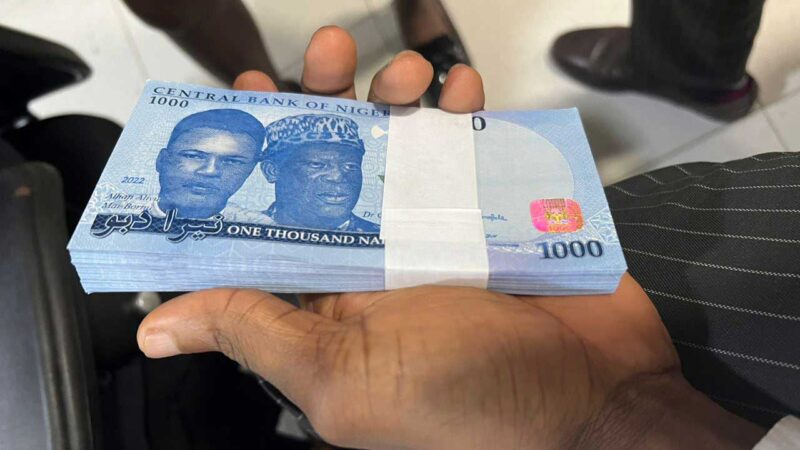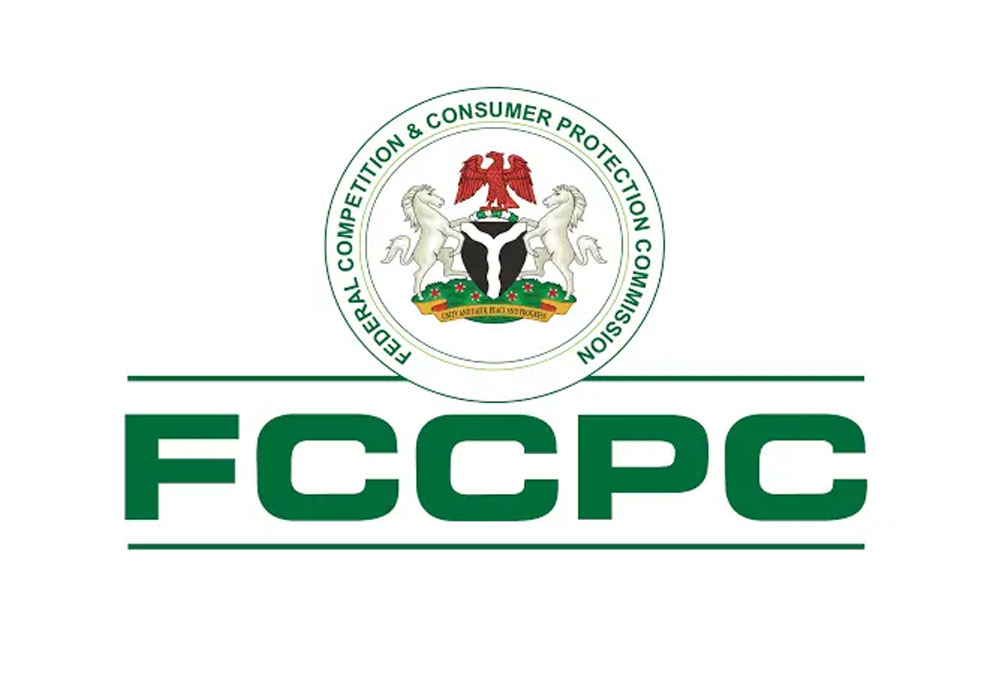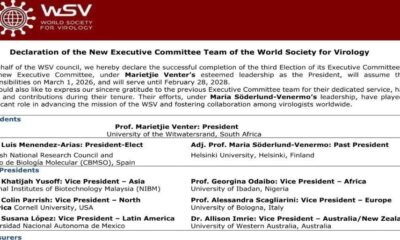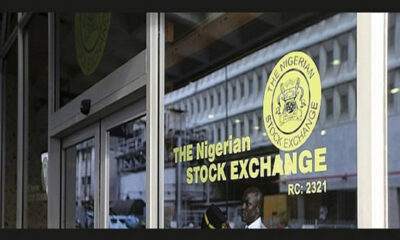Business
Naira becomes worst performing currency in one month – Report

Naira becomes worst performing currency in one month – Report
As outlined in a recent Bloomberg report, the
The Nigerian currency, naira, has experienced a significant downturn, moving from being the best performing to the worst performing in the last one month.
This contrasts with its commendable performance in the previous month, placing added pressure on the Central Bank of Nigeria (CBN) to consider further interest rate adjustments.
The naira’s depreciation to 1,466.31 against the dollar, its weakest level since March 20, is primarily attributed to the scarcity of US currency in the local market, with only $84 million available on Thursday, representing half of the previous day’s supply.
CBN Governor Yemi Cardoso had previously lauded the Naira as the world’s best-performing currency as of April 2024. However, challenges arose in March, with the Naira plummeting to N1,600/$1 on the official market and N1,800/$1 on the parallel market.
READ ALSO:
- NANS kicks against tuition fee introduction in federal varsities
- Binance: Rep threatens legal action over $140m bribe allegation
- TETFUND funds 40,000 PhD researches, others, 5,525 infrastructural projects across institutions
Cardoso attributed this achievement to foreign exchange market reforms and positive sentiment from leading international investment institutions. Nonetheless, Razia Khan, Chief Economist for Africa and the Middle East at Standard Chartered, estimates that the maturity of $1.3 billion in Naira futures by the end of this month may increase demand for dollars, impacting market sentiment.
This decline in the naira’s performance is anticipated to escalate pressure on the CBN to implement another rate hike following its upcoming policy meeting on May 21.
The CBN had raised rates by 600 basis points in February and March, aiding the Naira’s rebound from its March low.
The weakening of the naira extends to the unofficial market, where it depreciated by 0.9% to 1,468 Naira against the dollar on Friday. According to Abubakar Muhammed, CEO of Forward Marketing Bureau de Change Ltd, this decline is attributed to heightened demand from individuals and small businesses.
Interestingly, two other African currencies, the Zambian kwacha and Ghana’s cedi, rank among the four worst-performing currencies in the last month. The Zambian kwacha reached a record low against the dollar on Friday, while Ghana’s cedi weakened to its lowest level since 2022, reflecting ongoing debt restructuring processes in both countries.
Naira becomes worst performing currency in one month – Report
Auto
Mikano, Autochek Target Financing Gap in New Push for Vehicle Ownership, launch virtual showroom

Mikano, Autochek Target Financing Gap in New Push for Vehicle Ownership, launch virtual showroom
Mikano Motors has said its new partnership with Autochek Africa is aimed at delivering a more complete vehicle ownership experience by combining premium mobility with smarter financing solutions for Nigerian customers.
Speaking on the collaboration in Lagos on Friday at the launch of a Mikano Motors virtual showroom on Autochek’s platform, Joelle Haykal, Group Executive Director of Mikano Motors, described the deal as an extension of the company’s long-standing ownership philosophy.
She said, “Our focus has always been on delivering not just new vehicles, but a complete ownership experience. That includes up to six years’ warranty or up to 200,000 kilometres, nationwide aftersales support, and the confidence that comes from a 33-year legacy of trust.”
According to her, Mikano’s vehicles are specifically engineered for Nigerian roads, with durability and performance at the core of their design, ensuring customers drive with peace of mind.
She noted that the partnership with Autochek Africa would allow the company to go beyond vehicle sales by integrating premium products with flexible, structured financing options.
“This partnership allows us to combine premium mobility with smart financing solutions, giving customers greater flexibility, confidence and control over how they own a vehicle,” Haykal added.
On its part, Autochek Africa said the collaboration is focused on addressing what it described as the real barrier to vehicle ownership in Nigeria — limited access to financing.
READ ALSO:
- Presidency Mocks Atiku After Fintiri Defects to APC, Urges Him to Retire to Dubai
- DSS Apprehends Alleged Mastermind of Ayetoro ECWA Church Attack in Kogi
- Amaechi Reveals Buhari Refused Electoral Bill Over Russia Hacking Fears
“The demand for vehicles in Nigeria has never been the issue; access to financing has,” said Etop Ikpe, Chief Executive Officer of Autochek Africa.
He explained that by integrating Mikano’s vehicle portfolio with Autochek’s embedded financing technology, customers will gain access to multiple banking partners, faster credit approvals and loan structures tailored to their needs.
“Our partnership with Mikano Motors is designed to close that gap. By combining Mikano’s premium vehicle portfolio with our embedded financing technology, we are unlocking access to multiple banking partners with fast approvals so that anyone can find an offer that suits them, allowing more Nigerians to own brand-new cars with confidence,” Ikpe said.
The partnership, which includes the launch of a dedicated Mikano Motors Virtual Showroom on the Autochek platform, is expected to enable customers to compare models, apply for structured automotive loans, explore flexible payment plans and complete key stages of the purchase process online.
Both companies say the deal signals a broader shift in Nigeria’s automotive landscape, where digital platforms and embedded finance are increasingly shaping how vehicles are discovered, financed and owned.
Mikano Motors is a division of Mikano International, representing globally recognised automotive brands in Nigeria, including Changan, Deepal, Maxus and others.
The division is committed to delivering quality vehicles, reliable after-sales support and innovative mobility solutions tailored to the Nigerian market.
Autochek Africa is a leading pan-African automotive technology company transforming how vehicles are bought, sold and financed across the continent.
Through its marketplace and embedded financing solutions, Autochek provides individuals and businesses with improved access to quality vehicles while powering automotive commerce at scale.
Its infrastructure combines data, technology and strategic partnerships to make vehicle ownership more transparent, affordable and accessible throughout Africa.
Mikano, Autochek Target Financing Gap in New Push for Vehicle Ownership, launch virtual showroom
Business
Naira Appreciates to ₦1,382/$ in Parallel Market as Official Rate Softens

Naira Appreciates to ₦1,382/$ in Parallel Market as Official Rate Softens
The Nigerian naira showed mixed performance yesterday, appreciating to ₦1,382 per US dollar in the parallel market from ₦1,391 recorded on Wednesday. This rise reflects renewed confidence among traders in the informal foreign exchange market, even as the currency slightly depreciated in the official Nigerian Foreign Exchange Market (NFEM).
Data from the Central Bank of Nigeria (CBN) showed that the indicative official exchange rate moved to ₦1,361 per dollar, up from ₦1,359.5 per dollar on Wednesday — a ₦1.5 depreciation for the naira. Consequently, the margin between the parallel and official rates narrowed to ₦21 per dollar, down from ₦31.5 per dollar previously, indicating a reduction in the spread between formal and informal FX markets.
Experts say the parallel market gains were supported by improved dollar liquidity, steady remittance inflows, and robust external reserves, which recently reached levels not seen in over a decade. Analysts note that a narrowing spread between the black market and official rates typically signals growing market confidence and stability, even as structural challenges in Nigeria’s FX landscape persist.
READ ALSO:
- Presidency, APC Reject Opposition Claims on Electoral Act 2026
- Shariah Council Tells US No Foreign Power Can Force Nigerian Muslims to Abandon Shariah
- FCCPC Finds Evidence of Airfare Manipulation by Domestic Airlines
“While the naira is stronger in the parallel market, pressure remains on the official segment due to high demand for foreign currency by importers and businesses,” said a currency analyst. “The recent movements show optimism but highlight the ongoing volatility across exchange segments.”
The parallel market rate, often called the black market rate, responds quickly to dollar demand and supply at street level, while the official NFEM rate reflects CBN interventions and regulated forex flows. Observers say continued policy measures, remittance growth, and export receipts will be critical in maintaining naira stability ahead of the 2027 election period.
Despite the mixed trends, the recent appreciation in the parallel market is being viewed as positive for consumer confidence, though analysts caution that structural issues, including trade imbalances and uneven forex distribution, could still pressure the naira in coming weeks.
Naira Appreciates to ₦1,382/$ in Parallel Market as Official Rate Softens
Aviation
FCCPC Finds Evidence of Airfare Manipulation by Domestic Airlines

FCCPC Finds Evidence of Airfare Manipulation by Domestic Airlines
The Federal Competition and Consumer Protection Commission (FCCPC) says it has uncovered credible evidence of airfare manipulation by domestic airlines in Nigeria, revealing that some carriers may have artificially inflated ticket prices during the December 2025 festive travel season beyond what market forces would justify. In an interim report released on Thursday, the FCCPC said its extensive forensic review of airfare data collected directly from airlines across key domestic routes shows striking irregularities in pricing patterns that appear inconsistent with normal seasonal demand, fuel costs, foreign exchange movements, or other operational variables.
The review by the Commission’s Surveillance and Investigations Department, led by Director of Corporate Affairs Ondaje Ijagwu, compared peak-season fares in December 2025 against ticket prices in the post-holiday period of January 2026. In many cases — notably on high-traffic corridors such as Abuja–Port Harcourt, Lagos–Calabar, and Lagos–Enugu — the difference in fares reached as high as ₦405,000 for a single ticket, even though essential cost drivers remained relatively stable. “These fare differences appear to reflect airlines’ arbitrary pricing decisions, yield management strategies, and capacity allocation practices rather than any variation in regulated fees or significant changes in operating conditions,” Ijagwu said, suggesting that multiple domestic carriers might have engaged in tacit coordination rather than true competition.
The report also showed that during the peak period, reduced seat availability paired with clustered price ranges across multiple operators raised further competition concerns, lending weight to potential violations of Nigeria’s Federal Competition and Consumer Protection Act (FCCPA) 2018. The interim findings flagged possible breaches of provisions governing restraint of competition, abuse of dominant positions, price-fixing, conspiracy, unfair contract terms, and consumers’ right to fair dealings — signalling that airlines may have breached multiple competition and consumer protection rules.
READ ALSO:
- US Lawmaker Says Christians in Nigeria Bear Brunt of Violence, Calls on Trump to Act
- Eric Chelle Explains $130,000 Salary Proposal, Reaffirms Loyalty to Super Eagles
- Suspected Arsonists Set St. Mary’s Catholic Church Ablaze in Cross River
The Airline Operators of Nigeria (AON) swiftly pushed back against the FCCPC’s report. AON spokesman Prof. Obiora Okonkwo said the Commission lacks the specialised expertise to analyse aviation pricing, warning that the probe could harm Nigeria’s fragile airline sector. “They don’t understand the economics of airlines or how ticket prices are set based on yield, load factors, aircraft utilisation and revenue management systems,” Okonkwo said. “This action is very detrimental to the survival of domestic operators.”
Independent aviation analysts in Nigeria say pricing behaviour in the sector has long lacked transparency. Dr. Uche Okoro, a transport economist, told news editors that while peak-season travel normally pushes fares up, the consistency of spikes across multiple airlines on the same dates and routes — even where there was no significant change in fuel or exchange rates — suggests coordinated pricing behaviour. “Market competition should push airlines to differentiate prices based on service levels and actual costs,” Okoro said. “When several carriers raise prices almost in unison, especially on predictable peak travel dates, it warrants scrutiny.”
The Nigerian Civil Aviation Authority (NCAA) acknowledged the FCCPC’s interim report and pledged to support the broader probe, noting that the aviation sector must balance airline financial sustainability with fair market practices. An NCAA spokesperson said: “We are engaging with the FCCPC and industry stakeholders to promote a transparent pricing environment. While airlines need to remain viable, consumers must also be protected from exploitative fare regimes.” The NCAA emphasised that factors such as fleet size limits, airport slot restrictions, seasonal demand patterns, and infrastructure capacity do affect pricing, but agreed that unusually steep price spikes merit investigation.
According to the FCCPC, the route-by-route analysis showed that on Abuja–Port Harcourt, average peak-period fares were far higher than post-peak levels, with many tickets in December priced well above the typical seasonal range. On Lagos–Calabar and Lagos–Enugu, similar patterns of clustered fare bands across airlines suggested pricing behaviour broadly aligned among competitors rather than differentiated by market forces. Across sampled routes, median fares during the festive period were significantly elevated compared with post-peak benchmarks, despite stable fuel price trends, unchanged airport taxes, and no major exchange rate shocks. The FCCPC noted that while predictable seasonal demand surges can justify higher fares, the magnitude and pattern of the increases observed in December 2025 are not fully explained by ordinary market conditions.
FCCPC Executive Vice Chairman and CEO Tunji Bello stressed that the interim report is not an enforcement action, but a step toward deeper investigation. “The Commission’s role is to ensure that market outcomes reflect competition and consumer protection principles,” he said, adding that full findings and possible enforcement measures will follow after the ongoing review. Bello also signalled that foreign airlines operating international routes involving Nigeria will soon be probed, following complaints that Nigerian passengers are often charged significantly higher fares on similar international distances. “No operator — domestic or foreign — will be shielded if evidence confirms fare-fixing or consumer exploitation,” Bello said. The FCCPC has asked both airlines and consumers to assist in the investigation by providing additional data, while warning airlines that violations of the FCCPA could result in regulatory sanctions, fines, or mandatory corrective orders once the full review is concluded.
FCCPC Finds Evidence of Airfare Manipulation by Domestic Airlines
-

 Entertainment2 days ago
Entertainment2 days agoNollywood Actor Okemesi Confirmed Dead After Brief Illness
-

 metro2 days ago
metro2 days agoFrank Mba, Senior DIGs to Exit Police Service After Disu’s Appointment
-

 metro2 days ago
metro2 days agoAfrican Virologists Elected to Lead World Society for Virology
-

 News2 days ago
News2 days agoBREAKING: Tinubu Decorates Tunji Disu as Acting Inspector‑General of Police
-

 metro2 days ago
metro2 days agoAbroad-Based Nigerian Woman Kneels with Children in Emotional Tribute to Husband (VIDEO)
-

 metro2 days ago
metro2 days agoOsogbo Youths Confer Award of Excellence on Federal Polytechnic Offa Rector, Dr. Kadiri Kamoru
-

 Sports3 days ago
Sports3 days agoAchraf Hakimi to Face Trial Over Alleged Rape in France
-

 News2 days ago
News2 days agoMURIC Demands Suspension of Olubi School Principal, VPs Over Alleged Religious Discrimination









